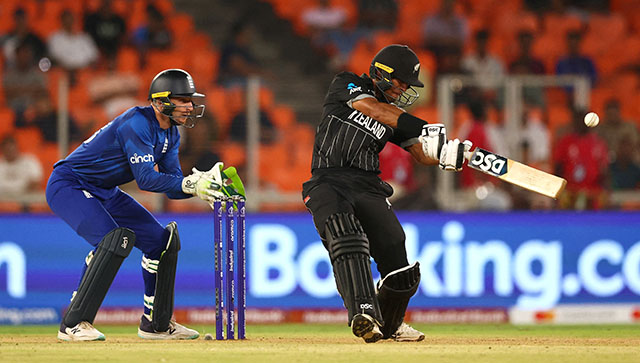In Ahmedabad, the 2023 ICC Cricket World Cup has kicked off with much fanfare. The tournament’s opening match witnessed England and New Zealand, a repeat of the 2019 final, battling it out on the cricket field. However, all eyes are on the Indian cricket team as they compete in a home World Cup for the first time in 12 years, carrying the hopes and aspirations of a cricket-crazy nation. The pressure on Team India is immense, not just because of the tournament’s significance but also due to historical trends. Since 2011, every ICC Cricket World Cup has been won by the host nation with Australia clinching the title in 2015 and England in 2019. The expectations are high that India should continue this streak, but we’ll save the punditry for another day and delve into the business side of cricket.
The ICC World Cup is a financial juggernaut and India is set to earn a staggering $2.6 billion (approximately Rs22,000 crore) from this edition. This substantial revenue stream comes from various sources with television rights being the largest contributor accounting for around Rs12,000 crore. Other sources include screenings, food deliveries, ticket sales, travel, merchandise and event management totalling the impressive figure. With the tournament coinciding with the festive season in India, the influx of spending by fans is expected to boost the economy. However, it’s not all good news, as this heightened expenditure is projected to drive up inflation by approximately 0.2 per cent. Yet, cricket enthusiasts are unlikely to be deterred by this economic consequence. The ICC Cricket World Cup 2023 features 48 matches played across ten venues with the final scheduled to be held in Ahmedabad on 19 November. As the tournament progresses, sponsors are hoping for India to go the distance as this would translate into higher viewership and increased traction for their brands. Sponsors play a pivotal role in the financial success of the World Cup with companies like Coca-Cola, Google and Hindustan Unilever among the ad sponsors. ICC’s partners including Saudi Aramco, Emirates and Nissan reflect the truly global nature of the tournament with participation from companies in US, West Asia and East Asia. Cricket’s popularity is undeniable with over one billion fans worldwide, the majority residing in South Asia including India, Pakistan and Bangladesh. This concentration of fans in a specific region demonstrates India’s central role in the cricketing world where it wields considerable influence over fans, revenue and politics. On tyhe other hand, cricket-playing nations such as England have a thriving football scene, while Australia’s first love is rugby, similar to New Zealand and in South Africa, football takes precedence. The Board of Control for Cricket in India (BCCI) receives a significant share of ICC’s total revenue, standing at 38 per cent, far surpassing other cricket boards. Annually, Indian cricket raises a colossal Rs1.5 billion in sponsorship and media rights. The Indian Premier League (IPL) is the crown jewel, contributing over Rs2,400 crore (approximately $280 million) to the BCCI’s coffers. However, beneath the surface of this financial prosperity cricket faces an identity crisis. The 50-over format, showcased in the ICC World Cup, is losing relevance. In the late 1990s and 2000s, India played 30 to 40 One Day Internationals (ODIs) per year. In recent years, this number has dwindled with India playing only 21 ODIs in 2023. The rise of Twenty20 cricket has led to a decline in the popularity of ODIs. This poses a challenge for cricket’s traditional format, which requires more time commitment from both players and fans. Additionally, the limited participation of countries in international cricket with only 10 teams in the World Cup, contrasts with the FIFA World Cup, which includes 32 and will expand to 48 teams. Cricket must expand its global footprint beyond Commonwealth countries and capture the world’s attention. India with its financial might, reach and star power is well-positioned to lead this change. The inclusion of cricket in events like the Asian Games and discussions about its appearance in the 2028 Olympics are positive steps toward globalising the sport. By taking the lead in expanding cricket’s horizons, India can exert soft power on the world stage. Views expressed in the above piece are personal and solely that of the author. They do not necessarily reflect Firstpost’s views. Read all the Latest News , Trending News , Cricket News , Bollywood News , India News and Entertainment News here. Follow us on Facebook, Twitter and Instagram.


)

)
)
)
)
)
)
)
)



